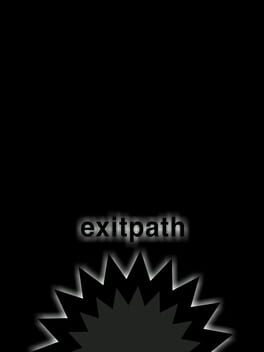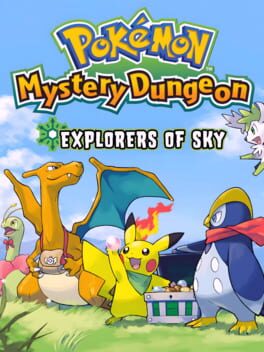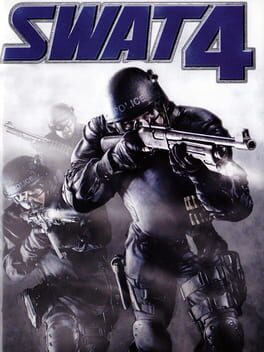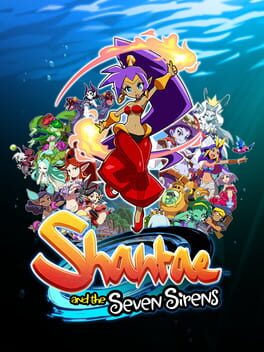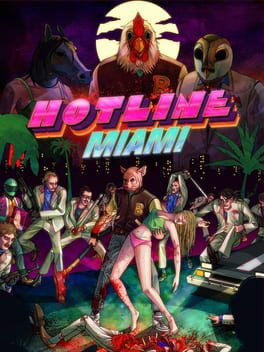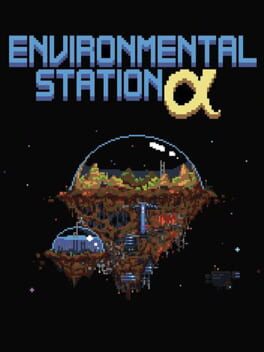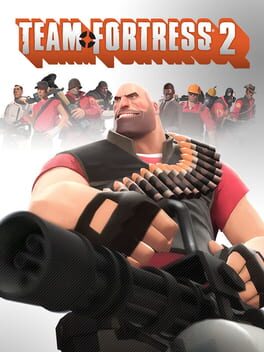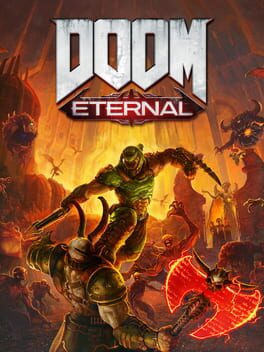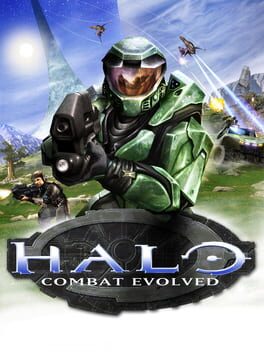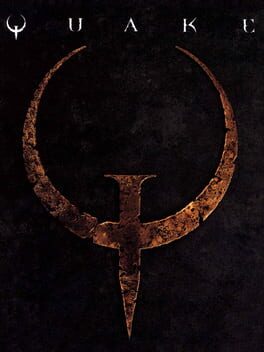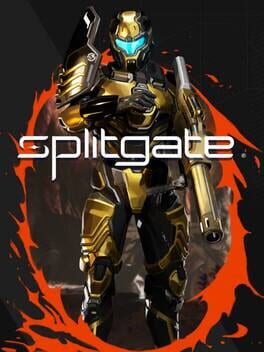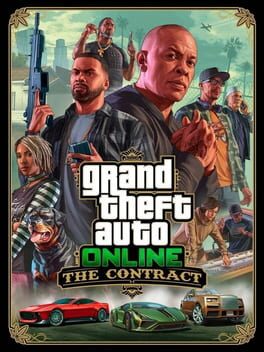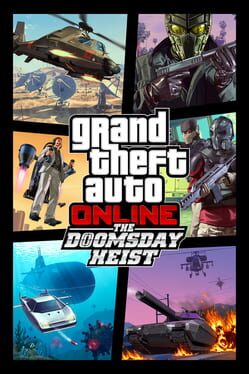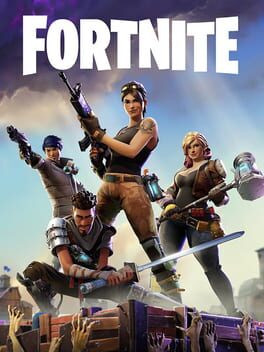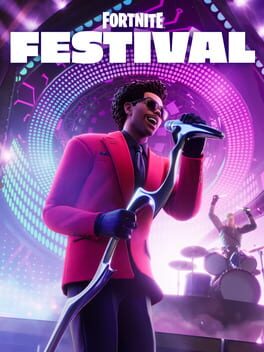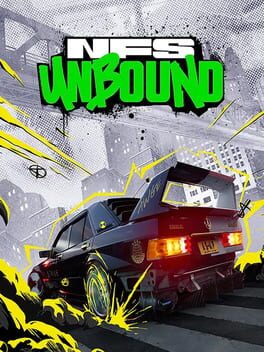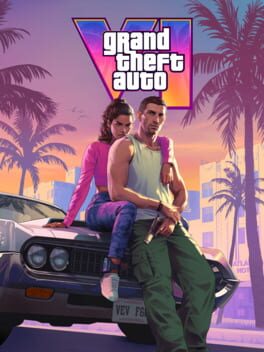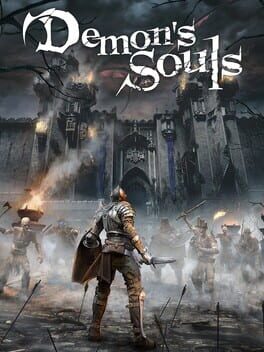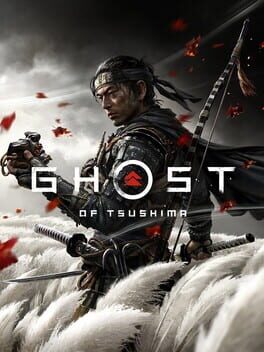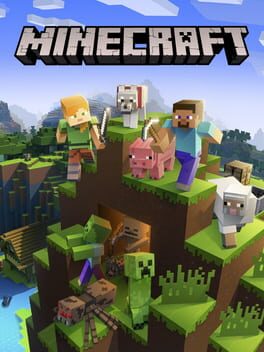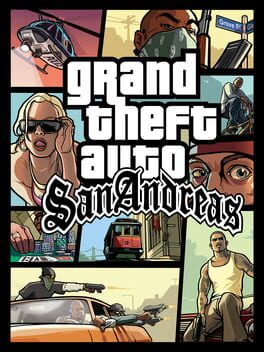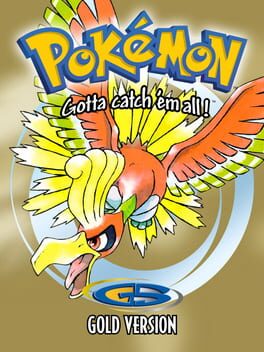2manyW
1206 reviews liked by 2manyW
Exit Path
2010
life might be worth living, actually
things irl have been kind of miserable lately so I desperately needed to play a game that would make me feel something. of all things a pokemon isekai game for babies succeeded at this and it's mostly thanks to a bisexual grovyle. It's the single game I've played all year (other than mother 1, but I started that in 2023 and finished literally minutes after new year) that has actually invoked a reaction from me other than just nostalgia like all the mainline pokemon replays i've done. this was also a replay so despite knowing how things were going to turn out I still wound up being moved by it all
one of pmd's most appealing aspects is the world you're transported to. my enjoyment of and how much im able to resonate with mainline pokemon games fringes on its regions, but the world of pmd specifically just has a totally unmatched sense of belonging. you're immediately thrust into a welcoming, tightly-knit community of people with similar goals and the congregation of these people serves as the game's hub area for its entire runtime. all of these people, including you, has a purpose, and your presence leaves a positive impact on all of them - especially your partner. i think it's a rare example of a game actually conveying to the player that they are a part of the game world and that they as a person matter - that the world would be different without them. even minor npcs are given constantly changing dialogue thanks in part to the narrative's episodic structure - shoutouts to the toxic-yaoi wurmple-swellow duo.
spoilers for this paragraph: the latter portion of the game's narrative is what ties all of this in a neat bow for me. i've already harped on about how defying fate and saving the future is one of my favourite tropes in fiction in countless other reviews and it's no different here. there's just something so viscerally empowering about characters like grovyle or lucina or future trunks with the resolve to push on even in the most bleak of circumstances and to fight for a better tomorrow. pmd2 is one of the better examples of this given you get to experience that future firsthand and it's one of the few examples of showing the sacrifices that have to be made when messing with timelines. i hadn't actually played the grovyle postgame episode before now so that likely played a big part in the game still resonating with me despite this being a replay. that or it's because Arata Iiyoshi's compositions never fail to give me goosebumps. such an underappreciated composer, their only vgm works are seemingly for the pmd series as well as various beatmania and ddr games, and no one ever seems to bring them up by name.
probably my single gripe with pmd is that characters aside from your custom named protagonist and partner just use their normal pokemon names. no other pokemon game will make me care as much about a loudred or a wigglytuff or the other guild members but giving unique names to important story characters would've gone a long way i think. all the character personalities are so easily distinguishable already though so it's ultimately a minor complaint. doesn't stop this from being peak fiction. the gameplay is also just kinda ok but I enjoy it and tbh it's really not what you're playing this for lol
it's a monster house
things irl have been kind of miserable lately so I desperately needed to play a game that would make me feel something. of all things a pokemon isekai game for babies succeeded at this and it's mostly thanks to a bisexual grovyle. It's the single game I've played all year (other than mother 1, but I started that in 2023 and finished literally minutes after new year) that has actually invoked a reaction from me other than just nostalgia like all the mainline pokemon replays i've done. this was also a replay so despite knowing how things were going to turn out I still wound up being moved by it all
one of pmd's most appealing aspects is the world you're transported to. my enjoyment of and how much im able to resonate with mainline pokemon games fringes on its regions, but the world of pmd specifically just has a totally unmatched sense of belonging. you're immediately thrust into a welcoming, tightly-knit community of people with similar goals and the congregation of these people serves as the game's hub area for its entire runtime. all of these people, including you, has a purpose, and your presence leaves a positive impact on all of them - especially your partner. i think it's a rare example of a game actually conveying to the player that they are a part of the game world and that they as a person matter - that the world would be different without them. even minor npcs are given constantly changing dialogue thanks in part to the narrative's episodic structure - shoutouts to the toxic-yaoi wurmple-swellow duo.
spoilers for this paragraph: the latter portion of the game's narrative is what ties all of this in a neat bow for me. i've already harped on about how defying fate and saving the future is one of my favourite tropes in fiction in countless other reviews and it's no different here. there's just something so viscerally empowering about characters like grovyle or lucina or future trunks with the resolve to push on even in the most bleak of circumstances and to fight for a better tomorrow. pmd2 is one of the better examples of this given you get to experience that future firsthand and it's one of the few examples of showing the sacrifices that have to be made when messing with timelines. i hadn't actually played the grovyle postgame episode before now so that likely played a big part in the game still resonating with me despite this being a replay. that or it's because Arata Iiyoshi's compositions never fail to give me goosebumps. such an underappreciated composer, their only vgm works are seemingly for the pmd series as well as various beatmania and ddr games, and no one ever seems to bring them up by name.
probably my single gripe with pmd is that characters aside from your custom named protagonist and partner just use their normal pokemon names. no other pokemon game will make me care as much about a loudred or a wigglytuff or the other guild members but giving unique names to important story characters would've gone a long way i think. all the character personalities are so easily distinguishable already though so it's ultimately a minor complaint. doesn't stop this from being peak fiction. the gameplay is also just kinda ok but I enjoy it and tbh it's really not what you're playing this for lol
it's a monster house
Games that tell stories only capable of being relayed through the medium of gaming will always hold a special place in my heart. Since my first encounters with video games as a whole, I've never quite found any method of storytelling to even compare to it. Sure, the occasional film or manga or what have you might catch my attention, but those I hold at the peak of any other medium don't really come close to the experiences I've had with gaming.
Return of the Obra Dinn has once again solidified this idea for me, and it does so in such a way where I feel that everything within the experience is deserving of commendation. The actors, writing, art, music, and everything all together unite for an extremely fleshed out and cohesive experience that held my attention the whole way through. I believe this holds true for much of the game's playerbase due to the incredible completion rates seen on each of the achievements. Return of the Obra Dinn manages to create a very unique gameplay loop I haven't quite seen elsewhere, it's an incredibly fresh and engaging experience that I feel anyone with a brain could hold appreciation for. It might not be a grand story in comparison to other titles of today, but it sure as hell is a good one, a GREAT one.
A game that will constantly have you thinking, theorizing, trying new things, finding new angles, and most importantly, keeping you engaged following through its bizarre and beautiful storytelling. This is a game that I believe couldn't and shouldn't be passed up, if you're interested, play it. You won't regret it.
Return of the Obra Dinn has once again solidified this idea for me, and it does so in such a way where I feel that everything within the experience is deserving of commendation. The actors, writing, art, music, and everything all together unite for an extremely fleshed out and cohesive experience that held my attention the whole way through. I believe this holds true for much of the game's playerbase due to the incredible completion rates seen on each of the achievements. Return of the Obra Dinn manages to create a very unique gameplay loop I haven't quite seen elsewhere, it's an incredibly fresh and engaging experience that I feel anyone with a brain could hold appreciation for. It might not be a grand story in comparison to other titles of today, but it sure as hell is a good one, a GREAT one.
A game that will constantly have you thinking, theorizing, trying new things, finding new angles, and most importantly, keeping you engaged following through its bizarre and beautiful storytelling. This is a game that I believe couldn't and shouldn't be passed up, if you're interested, play it. You won't regret it.
SWAT 4
2005
So above and beyond what a tactical police shooter would reasonably need to have in so many different areas that you wonder how it even came to be. SWAT 4 may sit at the top of the very narrow category of most anxiety-inducing simultaneous first and second person shooters with needlessly detailed environmental storytelling, but it’s led me to a much broader, more general thought – for how saturated and longstanding a genre it is, how much has what you can do with a shooter really been explored?
A few things about it bring this question to mind, but the main one for me’s its morale system. Each enemy and civilian has a different level of morale which affects how likely they are to surrender, pretend to surrender before pulling some kind of stunt or be nakedly noncompliant whenever you and your squad shout at them. By themselves, these kinds of reactions go a long way toward making it so that the player can never guess what’ll happen when they open any given door, but what takes this system to the next level is the sheer amount of factors which can affect it; whether they’re a group of trained gunman or a single inexperienced gangbanger, whether they’ve been stunned with some form of nonlethal attack, whether there are any hostages for them to take advantage of or hostiles to point you in the direction of, how many of you there are versus how many of them, how much damage they’ve sustained to each of their limbs and, my favourite, surprising them with warning shots. I’d never realised until playing this that hitting or missing a target in a shooter doesn’t necessarily have to be a dichotomy between success or failure – here, the latter can also be a tool for intimidation when Officer Backloggd User’s vocal chords aren’t cutting it alone. Firing a shotgun near someone’s feet to twist what’d normally be a failure state into something potentially advantageous extends past the fantasy of feeling like a Michael Mann character and gets the mind wondering about the uncapitalised potential of not just this genre, but others too. Why, for instance, do RPGs still often limit us to dialogue boxes labelled (Intimidate) or whatever when a far more organic implementation of that sort of interaction’s right here?
This sort of unpredictability which causes each attempt at the same level to play out differently every time’s a specialty of SWAT 4. Choosing different entry points coupled with NPCs’ semi-randomised spawns contribute a fair amount to this too, especially when specific characters are part of the mission’s objectives in some way, though the fact that the aforementioned limb-based damage system also applies to you and your squad plays a large role as well. While the extent to which this game wants you to take it slow’s immediately felt in the pairing of its relatively low movement speed and how harshly guns’ crosshairs widen, it becomes even more apparent when you’ve got an injured leg, head or arm. Suddenly, you find yourself even more hesitant to attempt to follow a fleeing suspect through a series of doors they’re shutting behind them, and whatever strategies you had in mind when selecting your long-range equipment have been scuppered by your diminished accuracy. If it sounds restrictive, don’t worry, because it can open up about as many avenues of play as it can close; one example I particularly enjoyed involved clearing a mission which heavily encourages you to use nonlethal weaponry by instead aiming for unarmoured limbs with 9mm FMJ rounds, since it’s easier to skirt around score penalties by incapacitating hostiles rather than killing them.
Although there’s an easy comparison to be made in terms of the replayability of individual encounters with its contemporary F.E.A.R., down to how heavily this stems from the AI’s dynamic behaviours, there’s another, less expected parallel in how thickly it lays on all things atmospheric. Breaching a two-storey room filled with explosive canisters and over half a dozen heavily armed death cultists is nerve-wracking enough, then it decides to hit you with a scene like this just moments after. It’d be easy to think of moments like this or a much earlier, loose equivalent of VTMB’s Ocean House Hotel as borderline genre pivots, but they’re more tonally synergistic than they seem at first. This is a game in which you die in two clean hits regardless of difficulty, so much as taking your eye off a bodycam for a second can prove to be fatal and, as noted above, you can never fully anticipate what’s going to greet you on the other side of a door, so it makes sense to ensure that the player can never anticipate what’s up next on a conceptual level in addition to a mechanical one, as well as to occasionally dial up the horror and exacerbate the uneasiness that average Joes with Uzis are already so good at instilling.
Irrational’s prior experience with horror isn’t the only instance of their ancestry rearing its head in the least likely of places, either. If you weren’t aware that they originated by splintering off from Looking Glass, having played one of the first two Thief games prior to this will probably clue you in, because SWAT 4’s incomplete, often hand-drawn, hastily annotated maps are straight out of those. You can only ever make a rough mental approximation of the layout of wherever you’re about to raid because of it, and chances are it’ll have geographical changes, potential hazards or other objectives they can’t possibly account for. It’s a small but brilliant touch which makes every eruption of overlapping GET DOWNs and WHERE’S MY GODDAMN LAWYERs mixed with gunfire all the more hectic as you’re inevitably forced to piece together your own whereabouts in the thick of it, usually while juggling your own perspective with that of a squadmate’s bodycam or a sniper feed to boot.
Despite how spur-of-the-moment all of this makes it sound and how many different ingredients are packed into it, up to and including some of Eric Brosius’ funkiest work, SWAT 4’s really a game of exceptionally singular focus; as the objective menu puts it, restoring order to chaos. It’s felt even in the size of its levels, which are just right for how many moving parts they each have and the number of ways in which those parts can be manipulated – you can charge me on account of lying if I told you that it’s always fun hunting down the last remaining suspect regardless, but it is always intense, and in general the most minor of blemishes on what’s otherwise one of many attestations to the fact that we’d probably be grand if games had just stopped progressing past what they could do in 2005.
Keep your cool, fiddle with your squadmates’ equipment and make regular use of the command menu to breach whatever obstacles are between you and giving this game a try, boss.
A few things about it bring this question to mind, but the main one for me’s its morale system. Each enemy and civilian has a different level of morale which affects how likely they are to surrender, pretend to surrender before pulling some kind of stunt or be nakedly noncompliant whenever you and your squad shout at them. By themselves, these kinds of reactions go a long way toward making it so that the player can never guess what’ll happen when they open any given door, but what takes this system to the next level is the sheer amount of factors which can affect it; whether they’re a group of trained gunman or a single inexperienced gangbanger, whether they’ve been stunned with some form of nonlethal attack, whether there are any hostages for them to take advantage of or hostiles to point you in the direction of, how many of you there are versus how many of them, how much damage they’ve sustained to each of their limbs and, my favourite, surprising them with warning shots. I’d never realised until playing this that hitting or missing a target in a shooter doesn’t necessarily have to be a dichotomy between success or failure – here, the latter can also be a tool for intimidation when Officer Backloggd User’s vocal chords aren’t cutting it alone. Firing a shotgun near someone’s feet to twist what’d normally be a failure state into something potentially advantageous extends past the fantasy of feeling like a Michael Mann character and gets the mind wondering about the uncapitalised potential of not just this genre, but others too. Why, for instance, do RPGs still often limit us to dialogue boxes labelled (Intimidate) or whatever when a far more organic implementation of that sort of interaction’s right here?
This sort of unpredictability which causes each attempt at the same level to play out differently every time’s a specialty of SWAT 4. Choosing different entry points coupled with NPCs’ semi-randomised spawns contribute a fair amount to this too, especially when specific characters are part of the mission’s objectives in some way, though the fact that the aforementioned limb-based damage system also applies to you and your squad plays a large role as well. While the extent to which this game wants you to take it slow’s immediately felt in the pairing of its relatively low movement speed and how harshly guns’ crosshairs widen, it becomes even more apparent when you’ve got an injured leg, head or arm. Suddenly, you find yourself even more hesitant to attempt to follow a fleeing suspect through a series of doors they’re shutting behind them, and whatever strategies you had in mind when selecting your long-range equipment have been scuppered by your diminished accuracy. If it sounds restrictive, don’t worry, because it can open up about as many avenues of play as it can close; one example I particularly enjoyed involved clearing a mission which heavily encourages you to use nonlethal weaponry by instead aiming for unarmoured limbs with 9mm FMJ rounds, since it’s easier to skirt around score penalties by incapacitating hostiles rather than killing them.
Although there’s an easy comparison to be made in terms of the replayability of individual encounters with its contemporary F.E.A.R., down to how heavily this stems from the AI’s dynamic behaviours, there’s another, less expected parallel in how thickly it lays on all things atmospheric. Breaching a two-storey room filled with explosive canisters and over half a dozen heavily armed death cultists is nerve-wracking enough, then it decides to hit you with a scene like this just moments after. It’d be easy to think of moments like this or a much earlier, loose equivalent of VTMB’s Ocean House Hotel as borderline genre pivots, but they’re more tonally synergistic than they seem at first. This is a game in which you die in two clean hits regardless of difficulty, so much as taking your eye off a bodycam for a second can prove to be fatal and, as noted above, you can never fully anticipate what’s going to greet you on the other side of a door, so it makes sense to ensure that the player can never anticipate what’s up next on a conceptual level in addition to a mechanical one, as well as to occasionally dial up the horror and exacerbate the uneasiness that average Joes with Uzis are already so good at instilling.
Irrational’s prior experience with horror isn’t the only instance of their ancestry rearing its head in the least likely of places, either. If you weren’t aware that they originated by splintering off from Looking Glass, having played one of the first two Thief games prior to this will probably clue you in, because SWAT 4’s incomplete, often hand-drawn, hastily annotated maps are straight out of those. You can only ever make a rough mental approximation of the layout of wherever you’re about to raid because of it, and chances are it’ll have geographical changes, potential hazards or other objectives they can’t possibly account for. It’s a small but brilliant touch which makes every eruption of overlapping GET DOWNs and WHERE’S MY GODDAMN LAWYERs mixed with gunfire all the more hectic as you’re inevitably forced to piece together your own whereabouts in the thick of it, usually while juggling your own perspective with that of a squadmate’s bodycam or a sniper feed to boot.
Despite how spur-of-the-moment all of this makes it sound and how many different ingredients are packed into it, up to and including some of Eric Brosius’ funkiest work, SWAT 4’s really a game of exceptionally singular focus; as the objective menu puts it, restoring order to chaos. It’s felt even in the size of its levels, which are just right for how many moving parts they each have and the number of ways in which those parts can be manipulated – you can charge me on account of lying if I told you that it’s always fun hunting down the last remaining suspect regardless, but it is always intense, and in general the most minor of blemishes on what’s otherwise one of many attestations to the fact that we’d probably be grand if games had just stopped progressing past what they could do in 2005.
Keep your cool, fiddle with your squadmates’ equipment and make regular use of the command menu to breach whatever obstacles are between you and giving this game a try, boss.
I would like to thank @duhnuhnuh for gifting me this game, as a part of their massive Steam Key giveaway, and I’d recommend checking it out if you’d like to try some games out for the cost of absolutely nothing.
Shantae and the Seven Sirens is sure the fifth video game entry in the Shantae video game series released on video game consoles in 2020.
Going back a few years, Shantae and the Seven Sirens feels bizarre. It entered development around March 2018-ish, and was revealed about a year later, simply as Shantae 5. It was somewhat exciting to me, as someone who hadn't played a Shantae game yet but was definitely interested in the series. I grew up watching the Shantae Pirate’s Curse commercials on the 3DS, so I knew all of the characters, and I also heard that FUCKING MUSIC! But fast-forward a few months, it was eventually revealed that it would be a timed Apple Arcade exclusive, and I think the Shantae fans died a little inside, but rest assured, the game was fully released… to no avail! I had genuinely not seen anybody talk about the new game. The Steam reception seemed positive, the Metacritic scores were solid, so what happened? It wasn't until my Summer of 2022 Shantae binge that I would beat and finish almost every game in the series, save for two. Shantae (the first one), because of a crash that was seemingly exclusive to Switch and 3DS, and Seven Sirens, and by god. I could tell why this game went under the radar. It was really… meh, for the lack of a better term. I had only played till about the first zone, but the game really lacked the fun factor of Pirate’s Curse, nor did it have the phenomenal level design of Half Genie Hero,and overall, it was just really fucking easy. Over a year later after release though, the game received a brand new update which gave it a Definitive Mode alongside 3 other modes, which was nice, although it also released to basically no fanfare. Did every Shantae fan just… disappear between 2018 and then? I wasn't aware of the new update as I was using a less than legal copy, but now that I have the Steam version, it's time to give the game another look. With the Definitive Mode, is Shantae and the Seven Sirens a worthwhile package? Or does it give me scurvy? The biggest issue is it’s lack of risk taking with the tried-and true Shantae formula, unlike the previous 3 games, making it feel very by the numbers as yet another entry in the Shantae franchise. And none of the games have felt so... generic before. Let’s pop open the hatch, and see why Seven Sirens is so disappointing (to me, at least).
Right off the bat, I do have a few praises regarding how WayForward implemented these 4 new game modes. While the Definitive Mode takes precedence over the Legacy Mode, if you wish, you can also revert to the Legacy Mode on a save by save basis, which is pretty nice. But also, another negative right off the bat. The graphics. I don’t like em, never have and never will; hell, I’ll goes as far as to say that the aesthetics are fundamentally flawed. A majority of this game’s graphics are follow the style of Half Genie Hero, but there’s a big issue with how the game is presented. Half Genie Hero was a beautiful game, being presented in the 2.5D art style that looked incredible on the eyes. The background had so many layers, the models were high quality, it was a really pretty looking indie game. Compare this screenshot to this one from Seven Sirens and the problem should be immediately apparent. Seven Sirens is presented in a 2D plain, and it looks flatter than my man boobs, not to mention the occasional model in the overworld which just looks out of place, like the many plants you’ll find. The cutscenes are the strongest visual aspect to the game. Studio Trigger animated the intro to the game, and it looks great. It's a bit too general for my tastes, as Risky really isn't a major part of the story, but it still looks frantic and fun overall. The in-game cutscenes aren't as fast paced as the first, but it still looks okay to me. But aside from the in-game cutscenes, it just doesn’t look appealing to me, akin to how the soundtrack never caught my ears.
You can really feel the loss of Jake Kaufman in the sound department here. The soundtrack of each individual Shantae game has been mostly solid, maybe save for the first game, but at least that released on GBC, and the compositions were actually pretty catchy. The composition team behind Seven Sirens was lead by Professor Sakamoto, and a variety of composer contributed to the soundtrack. But, what happened here??? All of it takes a chiptune-esque approach, which is fine (albeit odd for a hand-drawn graphic platformer), but it simply doesn’t sound memorable, nor really all that good. There’s a few decent songs here and there, but for the most part, the music is just… noise. No cohesion or anything., just… music… It’s easily my least favorite soundtrack in the entire series, and I really hope they can clap back with Advance.
When it comes to the game itself, it’s... odd to say the least, at least when it comes to progression and structure. Classic Shantae (2000 and Risky’s Revenge) had a big open map, while the Modern Games (Pirate’s Curse and Half Genie Hero) had much smaller, multiple maps. Sure, Half Genie Hero made it a level-by-level structure, but you still had to use your abilities to explore through to progress. It worked, although it was awkward at times to backtrack. Seven Sirens returns to the Classic Shantae style while also mixing in Modern Shantae, to somewhat mediocre results. Unlike previous Shantae games which had you use your abilities to progress, Shantae and the Seven Sirens opted for a more “find x item, bring it to here” design. It’s not terrible, but a part of me really missed the more character based progression of the previous games. It gave you an “Aha!” moment, but Seven Sirens doesn’t really do that all too well. At best, I really felt a sense of satisfaction that I was at least making progress, but what game fails at that? Maybe it’s because the abilities themselves... kind of suck.
Seven Sirens attempts to integrate the animals into your moveset, but it doesn’t really feel as great at how Pirate’s Curse did it. In Pirate’s Curse, you were always using all of your abilities at once. Not because you necessarily had to, but it was really fun to do so, and most of the level design in that game encouraged that. Big, flat open plain with a bunch of enemies you don't want to deal with? Annihilate their asses with the Dash. Seven Sirens, on the other hand, fails at this. I really only enjoyed the Newt Dash. The rest are kind of okay. You use them to progress. That’s it. No practical uses outside of combat, like Elephant, or Monkey from the classic games. But, if Shantae is a belly dancing genie, watt about her dances though? So… the dances. They’re all pretty annoying. Not only do they eat up your magic, meaning players going for the most combat-positive upgrades are essentially shot in the foot. But the dances themselves are really, really boring. Shantae uses an element, changes something in the current room, get the thing you need, move on. Needless to say. It’s not FUN. It’s so boring, like, is this REALLY the best you could do? What if the transformations changed your player character, but they all have different movesets which provide individual benefits? As it stands, the current system, it’s really not all that great.
As for the level design… it’s just your average Metroidvania level design. Well, what’s the issue? It’s JUST your average Metroidvania level design. Enemies are present in the map, everything connects together, use ability (without any inherent satisfaction to be had as it’s the most predictable thing you can fucking imagine), move on. Seriously, what happened to the level design in between Half Genie Hero and Seven Sirens? The levels aren’t dynamic at all, and not even the fucking enemies are different. It’s just so… AVERAGE. Ugh. At least the enemies are occasionally fun to fight, but good lord. Not to mention the multi-staged fetch quests throughout Paradise Island. Shantae’s fetch quests, at least since Pirate’s Curse, have been pretty reserved. Usually you have to return to an area only once, rarely twice, and never again. And it was actually fun, since all of your abilities were awesome to use, complimenting the previous level design. Sure, Half-Genie Hero wasn't as great in this aspect, as the animals weren't integrated into your moves, but at the very least you had the teleport dance, as well as less backtracking in general. Seven Sirens is absolutely loaded with this, but unlike Pirate’s Curse, the moveset is just too unviable for general use. There's a few more than Pirate’s Curse, but once again, they're not all for general use. The best out of the few is easily the triple jump and dash. The rest are just awkwardly bad. The shell is too unwieldy for general platforming, and hitting a big enough enemy completely stops it. It's thankfully manually charged, unlike Pirate's Curse, which was a bit finicky, but it's still eclipsed by the Pirate's Curse dash. And the Drill and Frog just kinda… sucked. They're just too slow and tedious, good lord. That's the best way to describe this game. It's not doing anything innovative, just existing half of the time. And it infuriates me. There needs to be a case study on how Seven Sirens fails at competent modern Metroidvania design. Rather than expressing its level design through your own player character, it remains stagnant by only requiring the bare minimum of you, leaving it as the least engaging of the centrilogy, soon to be hexology. Advance better not have these problems, because this game is severely lacking in the fun factor of the previous games.
But why are we traveling through this big, open world, gaining new abilities and rescuing these half-naked women? Well, look no further than the plot. Shantae and her friends are invited to “Paradise Island” (seriously???), an island filled with sunshine non-stop. It's here where Shantae meets four other Half Genies, as a plot point established in the first game; Plink, the smallest one, Vera, the best one, Zapple, the strong one, Filin, obviously Rottytops, and Harmony, the tallest one, holy shit. All of them get ready for a massive Half-Genie Festival, but on the night of the festival, all of the genies (sparing Shantae) disappear. Determined to find answers, Shantae explores all throughout Paradise Island in search of the Half-Genies. Risky Boots is encountered but denies any foul-play at hand The Half-Genies and even the bosses themselves are pretty one-note for the most part. It's about as video-gamey as plot structure gets. Find Half-Genie, kill Siren, bam, onto the next thing. Oh, but surprise surprise, Risky Boots was behind the entire thing!!! Well, partially at least. Because the Empress Siren made a deal with Risky if Risky kidnapped the 5 Half-Genies. Soooo… yeah. Almost entirely Risky’s fault. But here’s the thing. If Risky wanted to kidnap the genies, how in the HELL did she not take notice to Shantae? Shantae is Risky's arch nemesis; she’s SEEN Shantae do her genie moves in previous games. Why only leave Shantae? Why not kidnap them all? Sure, It’d be overkill, but nobody else would be able to rescue the Half Genes, let alone Rottytops and friends while they’re lazing about. Oh, and the Empress Siren? She just feeds off of the Genies to survive because Harmony’s mother placed a spell on her. Then she practically kills Risky, and then plans to become immortal by taking everyone’s life force. They fight, a shitty boss battle occurs- WAIT.
I’m completely with Yuzrnaime on this, the fights are genuinely TERRIBLE. Not only do they have an UNHEALTHY amount of HP, a majority of them sped long periods of time in invulnerability. IT’S GENUINELY IRRITATING. I’d type out a long ass rant, but I’m writing this at 2AM. Bitch, PLEASE. But once you kill Empress, she dies, Risky comes back, Shantae and friends leave, the end. Sweet dreams.
Seven Sirens is certainly one of the most disappointing games I've ever played through. As a follow up to the two best entries in the series, it really falters. It's a game with 80% hot air in between it's content, succeeding at almost nothing it does in the remaining 20%. I didn't feel terribly angry while playing, just mildly annoyed. Shantae's abilities? Occasionally fun, but mostly annoying. The world map? Generic and mostly annoying. The dungeon designs? Among the worst in the series for simply how annoying they are. The bosses? Padded out and annoying. The music? Bland, and more importantly, annoying. I left Seven Sirens mostly ambivalent to its content, no desire to really play it, but most importantly, annoyed. I feel annoyed at this game's very existence. Not angry. Simply. Annoyed.
Shantae and the Seven Sirens is sure the fifth video game entry in the Shantae video game series released on video game consoles in 2020.
Going back a few years, Shantae and the Seven Sirens feels bizarre. It entered development around March 2018-ish, and was revealed about a year later, simply as Shantae 5. It was somewhat exciting to me, as someone who hadn't played a Shantae game yet but was definitely interested in the series. I grew up watching the Shantae Pirate’s Curse commercials on the 3DS, so I knew all of the characters, and I also heard that FUCKING MUSIC! But fast-forward a few months, it was eventually revealed that it would be a timed Apple Arcade exclusive, and I think the Shantae fans died a little inside, but rest assured, the game was fully released… to no avail! I had genuinely not seen anybody talk about the new game. The Steam reception seemed positive, the Metacritic scores were solid, so what happened? It wasn't until my Summer of 2022 Shantae binge that I would beat and finish almost every game in the series, save for two. Shantae (the first one), because of a crash that was seemingly exclusive to Switch and 3DS, and Seven Sirens, and by god. I could tell why this game went under the radar. It was really… meh, for the lack of a better term. I had only played till about the first zone, but the game really lacked the fun factor of Pirate’s Curse, nor did it have the phenomenal level design of Half Genie Hero,and overall, it was just really fucking easy. Over a year later after release though, the game received a brand new update which gave it a Definitive Mode alongside 3 other modes, which was nice, although it also released to basically no fanfare. Did every Shantae fan just… disappear between 2018 and then? I wasn't aware of the new update as I was using a less than legal copy, but now that I have the Steam version, it's time to give the game another look. With the Definitive Mode, is Shantae and the Seven Sirens a worthwhile package? Or does it give me scurvy? The biggest issue is it’s lack of risk taking with the tried-and true Shantae formula, unlike the previous 3 games, making it feel very by the numbers as yet another entry in the Shantae franchise. And none of the games have felt so... generic before. Let’s pop open the hatch, and see why Seven Sirens is so disappointing (to me, at least).
Right off the bat, I do have a few praises regarding how WayForward implemented these 4 new game modes. While the Definitive Mode takes precedence over the Legacy Mode, if you wish, you can also revert to the Legacy Mode on a save by save basis, which is pretty nice. But also, another negative right off the bat. The graphics. I don’t like em, never have and never will; hell, I’ll goes as far as to say that the aesthetics are fundamentally flawed. A majority of this game’s graphics are follow the style of Half Genie Hero, but there’s a big issue with how the game is presented. Half Genie Hero was a beautiful game, being presented in the 2.5D art style that looked incredible on the eyes. The background had so many layers, the models were high quality, it was a really pretty looking indie game. Compare this screenshot to this one from Seven Sirens and the problem should be immediately apparent. Seven Sirens is presented in a 2D plain, and it looks flatter than my man boobs, not to mention the occasional model in the overworld which just looks out of place, like the many plants you’ll find. The cutscenes are the strongest visual aspect to the game. Studio Trigger animated the intro to the game, and it looks great. It's a bit too general for my tastes, as Risky really isn't a major part of the story, but it still looks frantic and fun overall. The in-game cutscenes aren't as fast paced as the first, but it still looks okay to me. But aside from the in-game cutscenes, it just doesn’t look appealing to me, akin to how the soundtrack never caught my ears.
You can really feel the loss of Jake Kaufman in the sound department here. The soundtrack of each individual Shantae game has been mostly solid, maybe save for the first game, but at least that released on GBC, and the compositions were actually pretty catchy. The composition team behind Seven Sirens was lead by Professor Sakamoto, and a variety of composer contributed to the soundtrack. But, what happened here??? All of it takes a chiptune-esque approach, which is fine (albeit odd for a hand-drawn graphic platformer), but it simply doesn’t sound memorable, nor really all that good. There’s a few decent songs here and there, but for the most part, the music is just… noise. No cohesion or anything., just… music… It’s easily my least favorite soundtrack in the entire series, and I really hope they can clap back with Advance.
When it comes to the game itself, it’s... odd to say the least, at least when it comes to progression and structure. Classic Shantae (2000 and Risky’s Revenge) had a big open map, while the Modern Games (Pirate’s Curse and Half Genie Hero) had much smaller, multiple maps. Sure, Half Genie Hero made it a level-by-level structure, but you still had to use your abilities to explore through to progress. It worked, although it was awkward at times to backtrack. Seven Sirens returns to the Classic Shantae style while also mixing in Modern Shantae, to somewhat mediocre results. Unlike previous Shantae games which had you use your abilities to progress, Shantae and the Seven Sirens opted for a more “find x item, bring it to here” design. It’s not terrible, but a part of me really missed the more character based progression of the previous games. It gave you an “Aha!” moment, but Seven Sirens doesn’t really do that all too well. At best, I really felt a sense of satisfaction that I was at least making progress, but what game fails at that? Maybe it’s because the abilities themselves... kind of suck.
Seven Sirens attempts to integrate the animals into your moveset, but it doesn’t really feel as great at how Pirate’s Curse did it. In Pirate’s Curse, you were always using all of your abilities at once. Not because you necessarily had to, but it was really fun to do so, and most of the level design in that game encouraged that. Big, flat open plain with a bunch of enemies you don't want to deal with? Annihilate their asses with the Dash. Seven Sirens, on the other hand, fails at this. I really only enjoyed the Newt Dash. The rest are kind of okay. You use them to progress. That’s it. No practical uses outside of combat, like Elephant, or Monkey from the classic games. But, if Shantae is a belly dancing genie, watt about her dances though? So… the dances. They’re all pretty annoying. Not only do they eat up your magic, meaning players going for the most combat-positive upgrades are essentially shot in the foot. But the dances themselves are really, really boring. Shantae uses an element, changes something in the current room, get the thing you need, move on. Needless to say. It’s not FUN. It’s so boring, like, is this REALLY the best you could do? What if the transformations changed your player character, but they all have different movesets which provide individual benefits? As it stands, the current system, it’s really not all that great.
As for the level design… it’s just your average Metroidvania level design. Well, what’s the issue? It’s JUST your average Metroidvania level design. Enemies are present in the map, everything connects together, use ability (without any inherent satisfaction to be had as it’s the most predictable thing you can fucking imagine), move on. Seriously, what happened to the level design in between Half Genie Hero and Seven Sirens? The levels aren’t dynamic at all, and not even the fucking enemies are different. It’s just so… AVERAGE. Ugh. At least the enemies are occasionally fun to fight, but good lord. Not to mention the multi-staged fetch quests throughout Paradise Island. Shantae’s fetch quests, at least since Pirate’s Curse, have been pretty reserved. Usually you have to return to an area only once, rarely twice, and never again. And it was actually fun, since all of your abilities were awesome to use, complimenting the previous level design. Sure, Half-Genie Hero wasn't as great in this aspect, as the animals weren't integrated into your moves, but at the very least you had the teleport dance, as well as less backtracking in general. Seven Sirens is absolutely loaded with this, but unlike Pirate’s Curse, the moveset is just too unviable for general use. There's a few more than Pirate’s Curse, but once again, they're not all for general use. The best out of the few is easily the triple jump and dash. The rest are just awkwardly bad. The shell is too unwieldy for general platforming, and hitting a big enough enemy completely stops it. It's thankfully manually charged, unlike Pirate's Curse, which was a bit finicky, but it's still eclipsed by the Pirate's Curse dash. And the Drill and Frog just kinda… sucked. They're just too slow and tedious, good lord. That's the best way to describe this game. It's not doing anything innovative, just existing half of the time. And it infuriates me. There needs to be a case study on how Seven Sirens fails at competent modern Metroidvania design. Rather than expressing its level design through your own player character, it remains stagnant by only requiring the bare minimum of you, leaving it as the least engaging of the centrilogy, soon to be hexology. Advance better not have these problems, because this game is severely lacking in the fun factor of the previous games.
But why are we traveling through this big, open world, gaining new abilities and rescuing these half-naked women? Well, look no further than the plot. Shantae and her friends are invited to “Paradise Island” (seriously???), an island filled with sunshine non-stop. It's here where Shantae meets four other Half Genies, as a plot point established in the first game; Plink, the smallest one, Vera, the best one, Zapple, the strong one, Filin, obviously Rottytops, and Harmony, the tallest one, holy shit. All of them get ready for a massive Half-Genie Festival, but on the night of the festival, all of the genies (sparing Shantae) disappear. Determined to find answers, Shantae explores all throughout Paradise Island in search of the Half-Genies. Risky Boots is encountered but denies any foul-play at hand The Half-Genies and even the bosses themselves are pretty one-note for the most part. It's about as video-gamey as plot structure gets. Find Half-Genie, kill Siren, bam, onto the next thing. Oh, but surprise surprise, Risky Boots was behind the entire thing!!! Well, partially at least. Because the Empress Siren made a deal with Risky if Risky kidnapped the 5 Half-Genies. Soooo… yeah. Almost entirely Risky’s fault. But here’s the thing. If Risky wanted to kidnap the genies, how in the HELL did she not take notice to Shantae? Shantae is Risky's arch nemesis; she’s SEEN Shantae do her genie moves in previous games. Why only leave Shantae? Why not kidnap them all? Sure, It’d be overkill, but nobody else would be able to rescue the Half Genes, let alone Rottytops and friends while they’re lazing about. Oh, and the Empress Siren? She just feeds off of the Genies to survive because Harmony’s mother placed a spell on her. Then she practically kills Risky, and then plans to become immortal by taking everyone’s life force. They fight, a shitty boss battle occurs- WAIT.
I’m completely with Yuzrnaime on this, the fights are genuinely TERRIBLE. Not only do they have an UNHEALTHY amount of HP, a majority of them sped long periods of time in invulnerability. IT’S GENUINELY IRRITATING. I’d type out a long ass rant, but I’m writing this at 2AM. Bitch, PLEASE. But once you kill Empress, she dies, Risky comes back, Shantae and friends leave, the end. Sweet dreams.
Seven Sirens is certainly one of the most disappointing games I've ever played through. As a follow up to the two best entries in the series, it really falters. It's a game with 80% hot air in between it's content, succeeding at almost nothing it does in the remaining 20%. I didn't feel terribly angry while playing, just mildly annoyed. Shantae's abilities? Occasionally fun, but mostly annoying. The world map? Generic and mostly annoying. The dungeon designs? Among the worst in the series for simply how annoying they are. The bosses? Padded out and annoying. The music? Bland, and more importantly, annoying. I left Seven Sirens mostly ambivalent to its content, no desire to really play it, but most importantly, annoyed. I feel annoyed at this game's very existence. Not angry. Simply. Annoyed.
Helldivers 2
2024
I will be buying this cuz of Sony's ultra based move, lmao.
List of countries where people can't make PSN accounts:
Afghanistan, Albania, Algeria, Andorra, Angola, Antigua Barbuda, Armenia, Azerbaijan, Bahamas, Bangladesh, Barbados, Belarus, Belize, Benin, Bhutan, Bosnia Herzegovina, Botswana, Brunei, Burkina Faso, Burundi, Cambodia, Cameroon, Cape Verde, Central African Republic, Chad, Comoros, Democratic Republic of the Congo (Congo-Kinshasa), Republic of the Congo (Congo-Brazzaville),Djibouti Dominica, Dominican Republic East Timor (Timor-Leste), Egypt, Equatorial Guinea, Eritrea, Estonia, Eswatini(Swaziland), Ethiopia, Fiji, Gabon, Gambia, Georgia, Ghana, Grenada, Guinea, Guinea-Bissau, Guyana, Haiti, Jamaica, Jordan, Kazakhstan, Kenya, Kiribati, Kyrgyzstan, Laos, Latvia, Lesotho, Liberia, Libya, Liechtenstein, Lithuania, Madagascar, Malawi, Maldives, Mali, Marshall Islands, Mauritania, Mauritius, Micronesia, Moldova, Monaco, Mongolia, Montenegro, Morocco, Mozambique, Myanmar (Burma), Namibia, Nauru, Nepal, Niger, Nigeria, North Macedonia (formerly Macedonia), Palau, Papua New Guinea, Rwanda, Saint Kitts, Nevis Saint Lucia, Saint Vincent, Grenadines Samoa, San Marino, Sao, Tome, Principe Senegal, Seychelles, Sierra Leone, Solomon Islands, Somalia, South Sudan, Sri Lanka, Sudan, and Suriname.
List of countries where people can't make PSN accounts:
Afghanistan, Albania, Algeria, Andorra, Angola, Antigua Barbuda, Armenia, Azerbaijan, Bahamas, Bangladesh, Barbados, Belarus, Belize, Benin, Bhutan, Bosnia Herzegovina, Botswana, Brunei, Burkina Faso, Burundi, Cambodia, Cameroon, Cape Verde, Central African Republic, Chad, Comoros, Democratic Republic of the Congo (Congo-Kinshasa), Republic of the Congo (Congo-Brazzaville),Djibouti Dominica, Dominican Republic East Timor (Timor-Leste), Egypt, Equatorial Guinea, Eritrea, Estonia, Eswatini(Swaziland), Ethiopia, Fiji, Gabon, Gambia, Georgia, Ghana, Grenada, Guinea, Guinea-Bissau, Guyana, Haiti, Jamaica, Jordan, Kazakhstan, Kenya, Kiribati, Kyrgyzstan, Laos, Latvia, Lesotho, Liberia, Libya, Liechtenstein, Lithuania, Madagascar, Malawi, Maldives, Mali, Marshall Islands, Mauritania, Mauritius, Micronesia, Moldova, Monaco, Mongolia, Montenegro, Morocco, Mozambique, Myanmar (Burma), Namibia, Nauru, Nepal, Niger, Nigeria, North Macedonia (formerly Macedonia), Palau, Papua New Guinea, Rwanda, Saint Kitts, Nevis Saint Lucia, Saint Vincent, Grenadines Samoa, San Marino, Sao, Tome, Principe Senegal, Seychelles, Sierra Leone, Solomon Islands, Somalia, South Sudan, Sri Lanka, Sudan, and Suriname.
Pentiment
2022
Finished in 2024 on Steamdeck
I didn’t think a medieval murder mystery would leave me emotionally scarred, but here we are. Pentiment is a beautiful piece of storytelling and artistry. Trying to uncover the mystery of Tassing piece by piece, spanning multiple generations - the story really had me gripped and left me wanting more each act. It really felt like the choices I made and the things I said mattered.
I didn’t think a medieval murder mystery would leave me emotionally scarred, but here we are. Pentiment is a beautiful piece of storytelling and artistry. Trying to uncover the mystery of Tassing piece by piece, spanning multiple generations - the story really had me gripped and left me wanting more each act. It really felt like the choices I made and the things I said mattered.
Hotline Miami
2012
Adorei o jogo, trilha sonora fenomenal, gameplay muito divertida e extremamente difícil. Me diverti em cada momento do jogo, desde a sua historia misteriosa, até a frustração de perder algumas vezes, tudo nesse jogo foi incrível.
História
Nada muito revolucionaria e bem misteriosa, tenho algumas teorias dela, mas não é o foco do jogo.
Gameplay
O melhor do jogo, é simples, mas é extremamente boa. Diversas maneiras de passar os capítulos e segue aquela dinâmica de tentativa e erro que eu adoro. A estética é linda e tudo é muito bonito e original no jogo.
Trilha Sonora
Outro ponto fortíssimo do jogo, já conhecia algumas musicas de Hotline Miami mesmo sem ter jogado. A musica se encaixa perfeitamente com a gameplay e com a estética do jogo, além de ficar na cabeça.
Pontos positivos e negativos
+Gameplay muito divertida
+Trilha sonora fenomenal
+Estética impecável
Conclusão
Hotline Miami foi incrível e adorei cada momento que joguei ele. Com sua trilha sonora impecável e estética magnifica, o jogo é muito bem feito e divertido. Nota 9/10.
História
Nada muito revolucionaria e bem misteriosa, tenho algumas teorias dela, mas não é o foco do jogo.
Gameplay
O melhor do jogo, é simples, mas é extremamente boa. Diversas maneiras de passar os capítulos e segue aquela dinâmica de tentativa e erro que eu adoro. A estética é linda e tudo é muito bonito e original no jogo.
Trilha Sonora
Outro ponto fortíssimo do jogo, já conhecia algumas musicas de Hotline Miami mesmo sem ter jogado. A musica se encaixa perfeitamente com a gameplay e com a estética do jogo, além de ficar na cabeça.
Pontos positivos e negativos
+Gameplay muito divertida
+Trilha sonora fenomenal
+Estética impecável
Conclusão
Hotline Miami foi incrível e adorei cada momento que joguei ele. Com sua trilha sonora impecável e estética magnifica, o jogo é muito bem feito e divertido. Nota 9/10.
Yakuza 0
2015
4 lists liked by 2manyW
by imshitting420 |
12 Games
by PloybertCorti |
10 Games
by PloybertCorti |
17 Games
by MrSnakeZero |
170 Games
